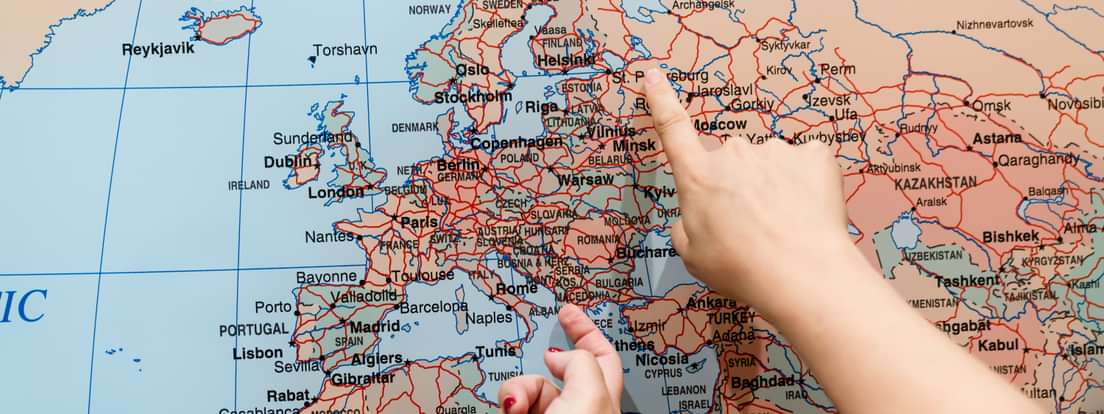
Guiding Principles
Experiential Education for Global Citizenship
In its Vision for the Academic Program, Phillips Academy affirms its goal of providing a liberal, engaging, and enriching learning experience that prepares students for life in the world. Echoing the Academy’s foundational values of youth from every quarter, knowledge and goodness, and non sibi (not for self), the statement reiterates our constitutional charge to ensure that our students learn “the great end and real business of living.” (Phillips Academy, 2023) Accordingly, Phillips Academy’s Course of Study curates a wide range of academic offerings that help students develop mindsets, attitudes, and habits of citizenship that fall within the scope of several headings, including global, experiential, and community-based learning.
Learning in the World (LITW) was born out of this vision and with the intention of making learning come alive with a global perspective, whether the learning takes place far away, nearby, on campus, or online. All students partaking in a LITW experience, thus, can expand their own “bubbles” toward becoming more engaged global citizens. In LITW, we build on the richness of our academic program by providing real-world opportunities for global learners to discover themselves and the world beyond us.
We are guided by the following principles in our design of experiential learning opportunities for global citizenship:
- Expand the worldview of our students and faculty while broadening their knowledge of and openness to diverse geographies, cultures, and value systems.
- Deepen our students’ understanding of the impacts, challenges, and opportunities associated with the constructive change that our increasingly connected world requires.
- Equip our students with essential skills, including creative and collaborative problem-solving, adaptability, resourcefulness, and the ability to gather, critically review, and synthesize the best available knowledge from diverse sources.
- Enhance mutual understanding and shared commitments to promoting the well-being of the natural world and all members of the global community.
- Give students access to different kinds of time-intensive, multidisciplinary, experiential, and community-based learning that may connect with and go beyond the classroom experience.
- Encourage students and faculty to seek a wider perspective in their engagement with the world, informed by empathy, humility, compassion, curiosity, respect, awareness of complexity, conviction, and a sense of agency and urgency.
What is “experiential learning?” Experiential learning can be defined simply as an immersive process by which a person develops knowledge objectively and subjectively incorporating the five senses. In a school setting, experiential learning is student-centered and takes place in a structured environment that is facilitated by a guide—the teacher—who organizes preparatory, empirical, and reflective exercises in order to foster meaningful and long-lasting connections with the subject matter. It is most profound when applied in a sustained fashion, versus episodically, in unfamiliar yet very real and relevant contexts and settings. Experiential learners may create their own primary-source knowledge, often in a collective way, emphasizing the construction of meaning over rote consumption of information. While experiential learning is not always “clean” and “efficient,” students take away many profound lessons as the result of embracing the controlled chaos and disequilibrium that ensues in their pursuit of greater understanding of the world.
What do we mean by “global?” We recognize that the term “global” may be contested and multi-layered as it is interpreted in numerous ways. For instance, for the student who comes from a part of the world other than the US and whose only exposure to this country has been through New England and Andover, participation in any of our domestic LITW offerings could provide a remarkable experiential, interdisciplinary “global” experience. Likewise, a student who has lived in the US their entire life could benefit greatly from learning experiences in neighboring communities and parts of the world they have yet to know well. (Nolan, et al., 2014) In another example, we can bring global perspectives of exchange partners and leading experts into our world-facing learning spaces, whether on campus or in the virtual realm. The term “global” also reflects the holistic nature of experiential learning, that it can engage and challenge all the skills, sensibilities, beliefs, attitudes, and dispositions that a learner embodies and may employ to become a more empathetic global citizen. It is in such a way that LITW ignites curiosity and inspires globally minded action, anywhere in the world.
Works Cited:
Nolan, C., et al. (2014). Learning in the World: Global, Community-Based & Experiential Learning [A Collaborative White Paper], 1–9.
Phillips Academy (2023). Vision for the Academic Program, 1-2.



